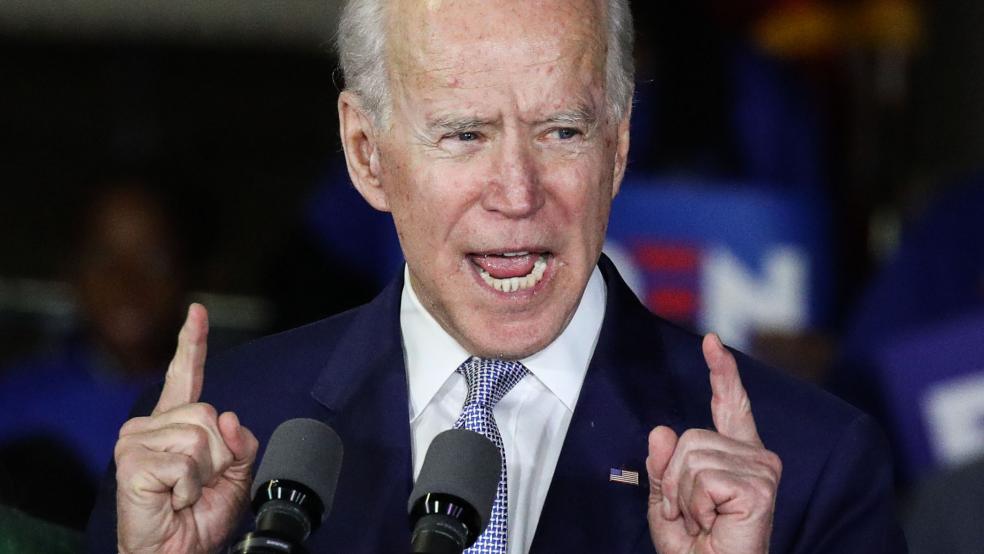As Joe Biden prepares to formally accept the Democratic presidential nomination Thursday, he’ll be looking to convince Americans that he, not President Trump, is best prepared to meet this moment in history and tackle a public health crisis, the economic devastation it has wrought and the financial, racial and social inequities that existing long before anyone had heard of Covid-19.
Biden has unveiled what his campaign has labeled a “Build Back Better” agenda calling for investments in U.S. manufacturing; infrastructure and green energy; child and elder care; and addressing the racial wealth divide. But the Democratic convention, as is typical, has emphasized Biden’s personal story more than his policy vision. As Michelle Obama put it in her speech Monday night, he’s a “profoundly decent man.” The overarching message: He’s a good guy, caring and empathetic, who understands the struggles so many now face and can restore some sense of normalcy to our Trump-tattered country.
“His campaign may have produced mountains of policy plans, but Biden does not have what could be described as a unified policy vision around which he is trying to unite the public,” The Washington Post’s Paul Waldman writes.
But the policy fights are coming, and as he seeks to unite Democrats and connect with a broad swath of the voting public, Biden may still need to do more than convince people that he’s a genuinely nice guy. He will need to lay out some sense of what a Biden presidency would look like and what it would mean for Americans worried about their own lives as much as they are about the “soul of the country.”
The answer to what a Biden presidency would look like is inextricably linked to another question, one that underlies the lingering reservations many on the left wing of the Democratic Party still harbor about their nominee based on his years in office: Is Joe Biden still a deficit hawk?
As Vox’s Dylan Matthews points out, Biden’s campaign may be talking about an ambitious, “FDR-sized” administration, but “there is a tension between this ambition and the man himself”:
“For all of the avowed boldness of an agenda shaped by Covid-19, the man pitching it remains … Joe Biden. He is a creature of the establishment, a product of a Democratic Party built for the (relative) boom times of the 1980s and ’90s, a Senate from a less polarized era, and an Obama administration that believed it could transcend Washington (it could not).
“When you talk to his campaign, you can see glimpses of that Biden. Yes, he’s proposing these multitrillion-dollar plans — but his advisers insist he’s a deficit hawk at heart. …
“There are two visions of a Biden presidency. One involves sweeping investments in clean energy, new jobs, and a fast recovery from the Covid-19 pandemic and recession.
“The other involves McConnell forcing Biden into brutal, humiliating budget deals that usher in austerity and strangle the recovery in the crib.
“Therein lies the fundamental tension in Biden’s candidacy: To enact his promised agenda, President Biden will have to be bolder than Sen. Biden and Vice President Biden ever were.”
Bloomberg News’s Jeffery Taylor, Mike Dorning and Jennifer Epstein suggested this week that anyone looking to predict how Biden would try to tackle the coronavirus crisis and its economic effects can find clues in the way he responded to the financial crisis and its aftermath as vice president. Their conclusion: “As he did in 2009, Biden considers running up the deficit as an unfortunate but necessary side effect of pumping money into the economy.” Or as Bloomberg summarized it in a subheadline: “Biden won’t shy from taxes or deficit increase to meet goals.”





